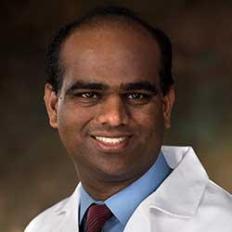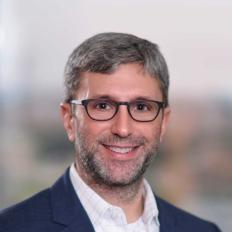Topics
Pediatric sarcoma is one of the rarest and most complex cancers diagnosed in children. Many pediatricians will never see a case in their lifetime of practice. For this reason, when children are suspected of having or have recently been diagnosed with a sarcoma, their physicians often turn to the experts at Texas Children’s Cancer and Hematology Center, who have extensive experience in diagnosing and treating these rare tumors of childhood.

“We care for approximately 50 children with newly diagnosed sarcoma each year,” said Rajkumar Venkatramani, MD, Section Chief, Clinical Oncology. “Given this patient volume, we have a dedicated team that specializes in the treatment of pediatric sarcomas.”
This team is comprised of physicians who are trained in pediatric subspecialties, including oncology, surgery, diagnostic imaging, molecular pathology and many more. In addition, the team includes experts in addressing the psychosocial and emotional needs of each child and their family.
Because pediatric sarcomas are so complex, it’s critical to identify the exact type of sarcoma the child has in order to develop the best treatment plan. Advances in molecular diagnostic approaches in particular have helped to further identify sarcoma subtypes, allowing for a more precise understanding of best treatments for patients with these rare diseases.
“We routinely use sophisticated molecular testing to diagnose the patient’s sarcoma subtype so that we can personalize their treatment,” Dr. Venkatramani said.

The treatment itself may involves many different team specialists. For example, “When surgery is part of the patient’s treatment plan, our team may include orthopedic oncologists, otolaryngologists or urologists, in addition to surgical oncologists, all of whom have had highly specialized training in tumor resection and are nationally and internationally recognized experts,” said Sarah Whittle, MD, director of the Texas Children’s Soft Tissue Sarcoma Program, one of the largest in the nation.
Leading-edge research benefits patients
In addition to the team’s breadth of experience and expertise, patients at Texas Children’s benefit from the hospital’s culture of research.
“Our research spans the full spectrum, from basic science research investigating mechanisms of cancer development and translational research testing new agents in laboratory models to clinical trials that offer access to drugs or cellular immunotherapies that specifically target the sarcoma based on our molecular testing,” Dr. Whittle said.
As with treatment, research programs may also be based on the specific type of sarcoma. For example, the Faris D. Virani Ewing Sarcoma Center focuses on investigating mechanisms of Ewing sarcoma metastasis, determining novel biomarkers of Ewing sarcoma, targeting Ewing sarcoma cancer stem cells and investigating the role of the Ewing sarcoma tumor microenvironment.

Another unique Texas Children’s research program is the Epidemiology and Population Sciences Program, led by Phillip Lupo, PhD, MPH. These researchers study the epidemiology of rhabdomyosarcoma (RMS), the most common type of soft tissue sarcoma in children, to better understand the genetic factors that may make a child susceptible to this cancer. Dr. Lupo also serves as the principal investigator of the Children’s Oncology Group (COG)-supported Genetics of Embryonal and Alveolar Rhabdomyosarcoma Study (GEARS) that is actively enrolling children throughout North America.
In order to further research into these rare tumors, Texas Children’s has established cancer registries to collect health information and biological samples in order to better define the natural history, effective treatments and outcomes of these cancers. De-identified tissue samples are collected and stored in a central biobank for research purposes, and demographic, treatment and outcome information is collected. These registries include the North American BCOR-mutated Sarcoma Registry, the North American Pediatric Angiosarcoma Registry and the North American Undifferentiated Embryonal Sarcoma of the Liver Registry.
When it comes to clinical trials, children with sarcoma who are treated at Texas Children’s have access to trials designed and conducted by our physician scientists, such as immune therapy trials, as well as to clinical trials conducted by the COG and Pediatric Early Phase Clinical Trials Network. Dr. Venkatramani serves as the scientific chair of the COG Soft Tissue Sarcoma Committee. In this role, he is responsible for overseeing the development of clinical trials that are available to children in the more than 200 COG institutions across North America.
To learn more about available clinical trials, refer a patient or request a second option, call 1-800-CANCER9 or visit Texas Children’s Solid Tumors Program.

